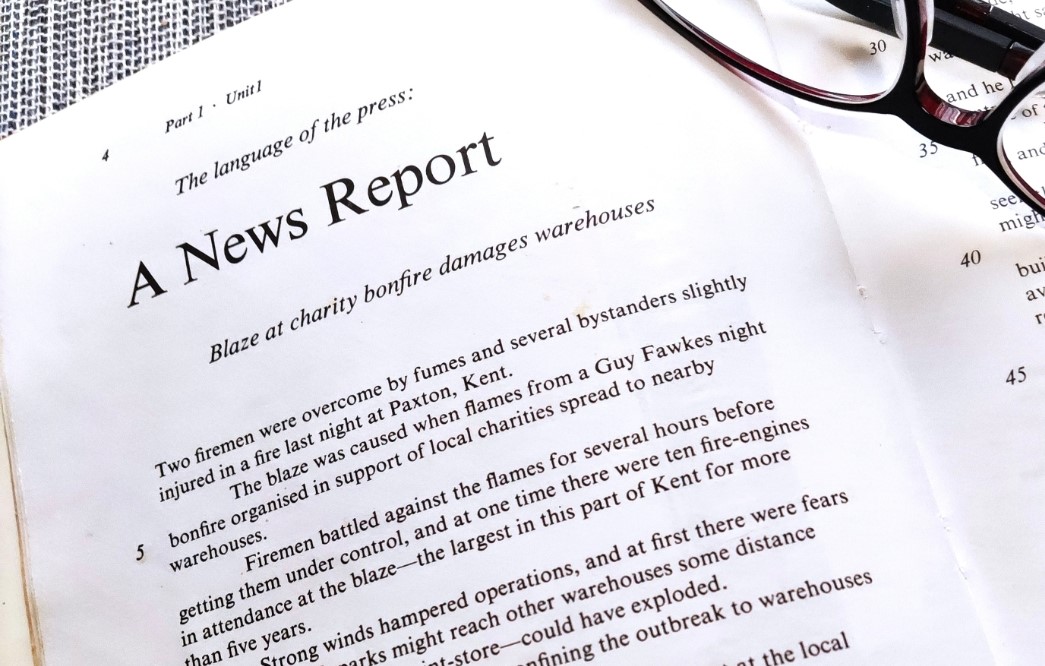日常会話で英語のネイティブが頻繁に使う句動詞(phrasal verb)とはなんぞや?
別名「群動詞」とも言う。以前は連語とかイディオムと言われることが多かった。
これは中学英語で習う基本的な動詞(have, get, go, put, take, comeなど)に前置詞(on, in, downなど)あるいは副詞(back, off, awayなど)が付いて一つの意味を成す動詞のこと。
と解説されてもピンと来ない。
また、句(群)動詞に続く単語には前置詞とも取れるものもあれば同時に副詞だとも取れる単語がある。
すると、ますますわからなくなる。
はっきりしているのは、そんな解釈の勉強をしても英会話力にはならないということ。
この記事では句動詞に関する簡単な解説はするが、すぐに音声付の例文で感覚的にわかるようにする。
これが効率的な英会話習得法であり独学法だ。
句(群)動詞の習得は最重要
英語のネイティブが日常会話で頻繁に使っているのに英会話初心者がなかなか使いこなせないのが句(群)動詞。
英会話初心者に「発見する」は英語で何と言うかと訊ねると大多数が discover と答える。
しかし、日常会話で discover よりネイティブに頻繁に使われるのは find out。
また、「継続する」を英語で何というかと訊くと多くは continue と答えるが、ネイティブは go on という句動詞を頻繁に使う。
従って、頭を切り替えて句(群)動詞優先の使い方(英語脳)に慣れないと英会話は巧くならない。
逆に、多くの句(群)動詞に慣れて何かを英語で言いたい時に句(群)動詞が優先的に頭に浮かぶようになるとあなたの英語はネイティブの英語(英語脳)にグッと近づく。
ただ、句(群)動詞はなんでこんなややこしい単語の組み合わせになっているんだと疑問に思うかもしれない。
そこで少し英語の歴史に敷衍するが、話に興味がないと感じた方はそのまま音声付の句(群)動詞の具体的例文に進まれるといい。
句(群)動詞の歴史について
英語の成立は古英語(Old English)中英語(Middle English)現代英語(Modern English)の三つに分けられている。
古英語(Old English) :西暦400年くらい~1100年くらい
中英語(Middle English) :西暦1100年くらい~1400年くらい
現代英語(Modern English):西暦1400くらい以降現在まで
ここでは詳細には立ち入らないが英単語の歴史を知る意味で見逃すことのできない一大事件があった。
1066年の Norman Conquest (ノルマン人の征服)である。

【Norman Conquest (ノルマン人の征服)とは】
1066年フランスのノルマンジー公ギヨーム2世(後のウイリアム1世)は王位継承権を主張してブリテン島に侵攻し当時のイングランド人を征服した。
ここで支配階級のフランス人が使うフランス語が大量に古英語に侵入する。
中英語の時代は正式の公用語はラテン語を母体とするフランス語で一般庶民が使うのがゲルマン語を母体とする英語という構図になるが、この間に英語はラテン語系フランス語とゲルマン語系英語が混在する構造の言語になった。
この構造は現代英語まで受け継がれており、例えば食卓にのぼる肉の名称は支配階級であるフランス語系の単語で家畜の名称は家畜を飼う被支配階級が使うゲルマン語系の単語が使われるという構造になっている。
例:beef/ox(or cow), pork/pig(or swine), venison/deer, mutton/sheep など。ただし、鶏の場合はどちらも chicken を使う。
実は、これと同じようなことが動詞でも発生した。フランス語などで言われても何のことかわからない一般のイギリス人が話すゲルマン語系の言葉が残り、これを色濃く反映するのが句(群)動詞というわけだ。
例:「消火する」= extinguish/put out 「中に入る」= enter/go in 「外に出る」= exit/go out 「延期する」= postpone/put off など
これが現在まで句(群)動詞が英語のネイティブによく使われるに至った歴史。
また、フランス語系の単語は英語のネイティブには大げさであったり堅苦しかったり、言ってみれば心に響く表現とはならないことが多い。
逆に、もともとのイギリス人が使っていた句(群)動詞は気持ちや情景を細やかに心に響くように表現できる。
なので、英語のネイティブの本音や気持ちを理解し、そういった会話に慣れるには句(群)動詞の習得が優先されるべきことである。
句(群)動詞を覚えるポイント
本記事はブログなのですべての句(群)動詞を解説することはできないが、句(群)動詞をモノにするために重要なポイントを述べる。
①アクセントやリエゾンとともに覚える
句(群)動詞は一般動詞と前置詞や副詞が組み合わさったものであり全体で一つの意味を成す表現なので、アクセントやリエゾン(連音)を一緒に覚えることが重要。
三つの例文でそれぞれの単語を正確に発音した場合と実際の会話ではどんな発音になるかを明らかにする。
・look after 「世話をする」
・come along「同行する、進む」
・get (a) hold of「見つける、把握する、手に入れる」
上の例でわかるように、句(群)動詞のアクセントは動詞の後の単語(after, along, hold) にある。
②意味あるフレーズで覚える
call on「頼む」 take over「引き継ぐ」 turn off「消す」などはそれぞれ句動詞だが、これらを個々に覚えようとしても忘れやすい。
句(群)動詞はイディオムに近い表現なので特に意味あるフレーズとともに覚えることが重要。

Can you call on him to attend the meeting?「彼にミーティングに出るように頼んでくれる?」

He called on his son to take over his business.「彼は息子に事業を引き継ぐことを頼んだ。」

Are you sure you turned off the light?「間違いなく電気消した?」
③単語のコアイメージを理解する
英語のネイティブは句(群)動詞の表現に慣れていると同時に英単語のコアイメージを掴んで会話をしている。
get という動詞から始まる句(群)動詞を例に解説する。
③-1. get のコアイメージ
ご存じのとおり get のコアイメージは「~を得る、手に入れる」だが、これに様々な前置詞や副詞あるいは名詞が繋がることで多彩な表現となる。
・get it「それを得る」→ I got it.「わかりました」「了解です」

I’ll get it. 「おれが出るよ。」*電話が鳴ったり玄関のピンポ~ンが鳴った時
・get by「すり抜ける」→「何とかやっていく」

I can get by on my salary.「給料で何とかやれるわ。」
・get through「切り抜ける」→「乗り切る」

I got through a day without money.「金なしで今日何とか乗り切ったよ。」
・get to「~に到着する」→ Why don’t we get to it?「じゃ、始めない?」/ これに down「下に」が付いて get down to になると「本腰を入れて取り掛かる」となる。

Let’s get down to discussing the issue.「その課題を本格的に議論しよう」
・get along「~に沿って行く」→ 「うまくいく」

I am afraid you don’t get along with your boss.「君は上司と巧く行かないんじゃないかな。」
・get (a) hold of 「hold(掴むこと)をgetする」=「掴まえる」→「連絡がつく」

Yesterday I couldn’t get a hold of my client.「昨日は顧客に連絡付かなくてさ。」
・get the hang of「コツを掴む」*これはこのまま覚えるしかない。

It’s easy once you get the hang of it.「コツさえわかれば簡単だよ。」
・get around to これは get to「~に到着する」の間に around「ぐるぐる回って」 が入った形 → 「やっと~することが出来るようになる」

We have finally got around to holding a party.「やっとパーティーを開催することができるようになったわ。」
・get carried away 「遠くに運ばれる状態になる」→「図に乗る、悪乗りする、我を忘れる」

Don’t get carried away. Cops have their eyes on you.「調子に乗るなよ。ポリが目を付けてるぞ。」
以上、 get を例に英単語のコアイメージで句(群)動詞を把握するポイントを解説した。
③-2. 代表的な前置詞や副詞のコアイメージ
代表的な前置詞や副詞のコアイメージを解説するが、一度で理解できるわけでもないので覚えようとはせずに納得できるところは納得する程度でいい。
・on 【接触】:a fly on the ceiling「天井にいるハエ」 a house on the river「川沿い家」 I’ll call you on coming home.「うちに帰ったらすぐに電話するよ。」 【直接の関係】:a book on the history of English「英語の歴史に関する本」 【依存】:It all depends on you.「すべてあなた次第です。」 【影響】:have an impact on society「社会へ影響を及ぼす」
・off 【離れる】:walk off「立ち去る」 make off「逃げる」 see off「見送る」 take off「離陸する」 put off「延期する」*離れた状態に置く→「延期する」 【非活動】:a day off「休み」*take a day off「休みを取る」 turn off the light「電気を消す」
・in 【状況や状態】:be in danger 「危険な状態にある」 be in difficulty 「困難な状況にある」 be in control 「支配下にある」 be in shape「健康な状態にある」 be in order「正常な状態にある」 be in love「恋している」 a girl in red「赤い服を着ている少女」 【範囲】:in the box「箱の中に」 in 2021「2021年に」 in ten minutes「10分後に」 *「10分以内に」は within ten minutes 【方法】:in English「英語で」 in pencile「鉛筆で」
・out 【外へ(に)】:be out「外出中」 go out「外出する」 out at sea「航海中」 【最後まで】:hear me out「最後まで聞く」 run out of gas「ガス切れする」 be tired out「疲れ切る」 【消えて(消して)】:put out「消す」 burn out「燃え尽きる」
・into 【侵入(注入)】:come into the house「家に入る」 look into「覗き込む→調べる」 bump into a door「ドアにぶつかる」 get into difficulties「困難に陥る」 【変化(結果)】:make flour into bread「小麦粉をパンにする」 translate English into Japanese「英語を日本語に訳す」 【熱中】:be into religion「宗教に凝る」 I’m really into tea ceremony.「茶道に嵌っている」
・up 【下から上】:stand up「立ち上がる」 jump up「飛び上がる」 go up to the University「大学に進学する」 look up to「尊敬する」 【~し尽くす】:eat up「食べ尽くす」 pack up「纏める」 boil up「煮上げる」 【出現】:come up in coversation「話題に上る」 come up three times「三度現れる」
・down 【下方に】:down the Thames「テムズ川下流に」 go down the river「川を下る」 look down on「~を見下す」 【減少】:slow down「減速する」 *注)pace down は和製英語 turn down「音量を下げる」 【消失】:burn down「焼け落ちる=全焼する」 tear down「取り壊す」 turn down an offer「申し出を断る」 【非活動】:get down「腐らせる、がっかりさせる」 shut down「閉鎖する」
代表的な句(群)動詞の例文
先に述べたように、この記事はブログという性格上すべての句(群)動詞を網羅することはできない。
ここでは英会話初心者が是非モノにしておくべき10個の代表的な基本動詞から始まる句(群)動詞の例文をそれぞれ三つ載せる。
先の述べたとおり、アクセントやリエゾン(連音)に注意しながら何度も発音しフレーズごと意味を理解しながら練習をすることが英会話修得の決め手となる。
ask の句(群)動詞

He asked me out.「彼が私をデートに誘ったの。」

You can ask your friends in.「友達に上がってもらっていいよ。」

That’s what you asked for, isn’t it?「それってあなたが望んだことじゃない?」
take の句(群)動詞

How much money did you take out from your account?「口座からいくら引き下ろしたの?」

Be sure to take off your shoes before you enter.「入る前に必ず靴を脱ぐように。」

I don’t like to be told (that) I take after my father.「父に似てるって言われれの嫌なんだよね。」
give の句(群)動詞

I didn’t expect him to give in to me so easily.「奴がそんな簡単に俺に負けを認めるとは思いもしなかった。」

Who do you think gave away the secret plan?「誰が秘密の計画を漏らしたと思う?」

Your kitchen is giving off a very good smell all over the dinning room.「お宅の台所って食堂いっぱいにいい匂いを漂わせているよね。」
turn の句(群)動詞

I’m afraid I forgot to put out the fire.「火を消し忘れたんじないかしら。」

You mean you turned down his proposal?「彼のプロポーズ断ったってこと?」

It will soon turn out to be true. 「すぐに本当だってわかるわ。」
go の句(群)動詞

What’s going on here?「どうなってるの?」「何が起きてるの?」

I would go about the problem a little bit differently.「私だったら少し違う風にその問題に対処するかな。」

The meeting successfully went ahead as planned.「ミーティングは予定通り巧く運びました。」
come の句(群)動詞

Let me know if you come across my phone.「私の携帯見かけたら教えてちょうだい」

This seal doesn’t come off easily.「このシールなかなか剥がれないよ。」

I’m just coming up with a good idea.「いい考え思いつきそうなんだけど。」
call の句(群)動詞

Let me call you back in about thirty minutes, OK?「30分後くらいに電
話かけ直させてくれますか?」

She called on me to attend the meeting.「彼女が僕にミーティングに出席するよう頼んだのさ。」

I called up a lesson ” Never follow strangers.”「私は見知らぬ人について行っちゃいけないという教えを思い出した。」
hold の句(群)動詞

Hold on a second. I’ll soon be back.「ちょっと待ってね。すぐに戻るから。」

I couldn’t hold back my feelings to her.「彼女に対する気持ちを抑えられなかった。」

The boy held out his hand smiling at me.「彼女は微笑みながら手を差し出した。」
keep の句(群)動詞

You should keep off alcohol if you want to get back health.「健康を取り戻したければアルコールから離れなさい。」

We kept on driving all the way to Mount Aso.「私たちは阿蘇山までずっとドライヴし続けました。」

The language used among young people is too hard for me to keep up with.「若い人たちの間で話されてる言葉は私には難しすぎて付いていけないよ。」
set の句(群)動詞

I feel (that) the rainy season has set in.「梅雨が始まったように感じるわ。」

We are going to set about expanding our market in Japan.「われわれは日本でのマーケット拡大に着手するつもりです。」

The police set up a barricade against the mob.「警察は暴徒に対抗してバリケードを築きました。」
以上、代表的な10個の一般動詞から続く句(群)動詞の例文を挙げた。
繰り返し注意を促すと、英会話の初心者は英文の理解や解釈に傾きがちだ。それが英会話の勉強に飽きたり挫折の原因となる。
英会話を巧くなるには理解できた英文を音声で繰り返し練習することが一番効果のある訓練となる。
併せて読みたい記事:英会話をストレスなく適量集中継続して習得する独学の手順はこれ
まとめ
・句(群)動詞は基本的な動詞が前置詞や副詞を伴い全体で一つの意味を成す。
・英語のネイティブは句(群)動詞を頻繁に使うので英会話初心者が句(群)動詞に慣れ使いこなすようになることは極めて重要。
・句(群)動詞を覚えるポイントは 1)音声(アクセントやリエゾン)とともに覚える。 2)意味のあるフレーズとともに覚える。 3)動詞や前置詞のイメージ形成をする。
・英会話初心者は英文の理解や解釈に集中し勝ちだが、音声とともに繰り返し練習をすることが何より英会話上達の訓練。

コメント